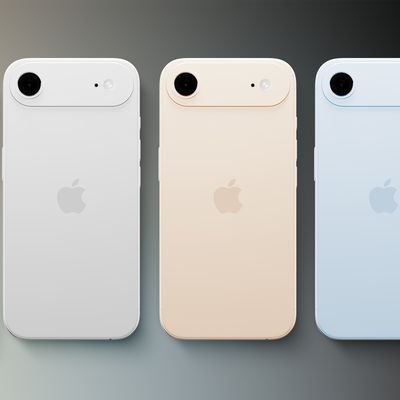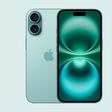iPod Lawsuit Against Apple Given Class-Action Status
Apple customers who purchased an iPod between September 12, 2006 and March 31, 2009 are being informed via email that they are being included in a class-action lawsuit filed against Apple in 2004. The lawsuit was granted class-action status by the courts last year and includes millions of customers who purchased any of a broad number of iPod music players. Notices are being distributed to customers covered by the class, directing them to the lawsuit's webpage.

The class-action suit was filed in January 2005 by a customer complaining about the exclusive nature of Apple's digital music offerings encoded with FairPlay, preventing users from playing music purchased from the iTunes Store on other companies' music players and other music stores' digital offerings from being played on iPods. In particular, Apple's efforts to thwart RealNetworks' reverse engineering of FairPlay with its own "Harmony" technology served as the impetus for the lawsuit.
In 2011, then Apple CEO Steve Jobs was instructed to provide a deposition in the case. Apple of course no longer sells DRM-encoded music through the iTunes Store, but the lawsuit argues that Apple sought to build monopolies in the digital music and portable music player markets by integrating its products and services while preventing interoperability with competitors' products.
Three individuals who bought iPods have sued Apple seeking to recover money for themselves and other people who bought iPods. The lawsuit claims that Apple violated federal and state laws by issuing software updates in 2006 for its iPod that prevented iPods from playing songs not purchased on iTunes. The lawsuit claims that the software updates caused iPod prices to be higher than they otherwise would have been.
The Court in charge of the case is the United States District Court for the Northern District of California, and the case is known as In re Apple iPod iTunes Antitrust Litigation, C-05-00037-JW.
The list of affected iPods is extensive, including all 5th generation iPods; the iPod Classic; the U2 Special Edition iPod; first, second and third generation iPod Shuffle models; first and second generation iPod Touch models; and, first, second, third and fourth generation iPod Nano models.
Customers who wish to be excluded from the class must inform the court by July 30, 2012. Members of the class who wish register with the court can sign up on the lawsuit's website.
Popular Stories
Apple will launch its new iPhone 17 series in two months, and the iPhone 17 Pro models are expected to get a new design for the rear casing and the camera area. But more significant changes to the lineup are not expected until next year, when the iPhone 18 models arrive.
If you're thinking of trading in your iPhone for this year's latest, consider the following features rumored to be coming...
A new Apple TV is expected to be released later this year, and a handful of new features and changes have been rumored for the device.
Below, we recap what to expect from the next Apple TV, according to rumors.
Rumors
Faster Wi-Fi Support
The next Apple TV will be equipped with Apple's own combined Wi-Fi and Bluetooth chip, according to Bloomberg's Mark Gurman. He said the chip supports ...
Apple's next-generation iPhone 17 Pro and iPhone 17 Pro Max are only two months away, and there are plenty of rumors about the devices.
Below, we recap key changes rumored for the iPhone 17 Pro models.
Latest Rumors
These rumors surfaced in June and July:A redesigned Dynamic Island: It has been rumored that all iPhone 17 models will have a redesigned Dynamic Island interface — it might ...
Apple does not plan to refresh any Macs with updated M5 chips in 2025, according to Bloomberg's Mark Gurman. Updated MacBook Air and MacBook Pro models are now planned for the first half of 2026.
Gurman previously said that Apple would debut the M5 MacBook Pro models in late 2025, but his newest report suggests that Apple is "considering" pushing them back to 2026. Apple is now said to be...
iPhone 17 Pro and iPhone 17 Pro Max models with displays made by BOE will be sold exclusively in China, according to a new report.
Last week, it emerged that Chinese display manufacturer BOE was aggressively ramping up its OLED production capacity for future iPhone models as part of a plan to recapture a major role in Apple's supply chain.
Now, tech news aggregator Jukan Choi reports...
The long wait for an Apple Watch Ultra 3 is nearly over, and a handful of new features and changes have been rumored for the device.
Below, we recap what to expect from the Apple Watch Ultra 3:Satellite connectivity for sending and receiving text messages when Wi-Fi and cellular coverage is unavailable
5G support, up from LTE on the Apple Watch Ultra 2
Likely a wide-angle OLED display that ...
In select U.S. states, residents can add their driver's license or state ID to the Wallet app on the iPhone and Apple Watch, providing a convenient and contactless way to display proof of identity or age at select airports and businesses, and in select apps.
Unfortunately, this feature continues to roll out very slowly since it was announced in 2021, with only nine U.S. states, Puerto Rico,...
The iPhone 17 and iPhone 17 Air will be available in a total of nine color options, according to new information coming out of Asia.
The iPhone 17 Air's expected color options.
According to the leaker going by the account name "yeux1122" on the Korean blog Naver, accessory manufacturers are now producing camera protector rings for the iPhone 17 and iPhone 17 Air in colors to match their...





















